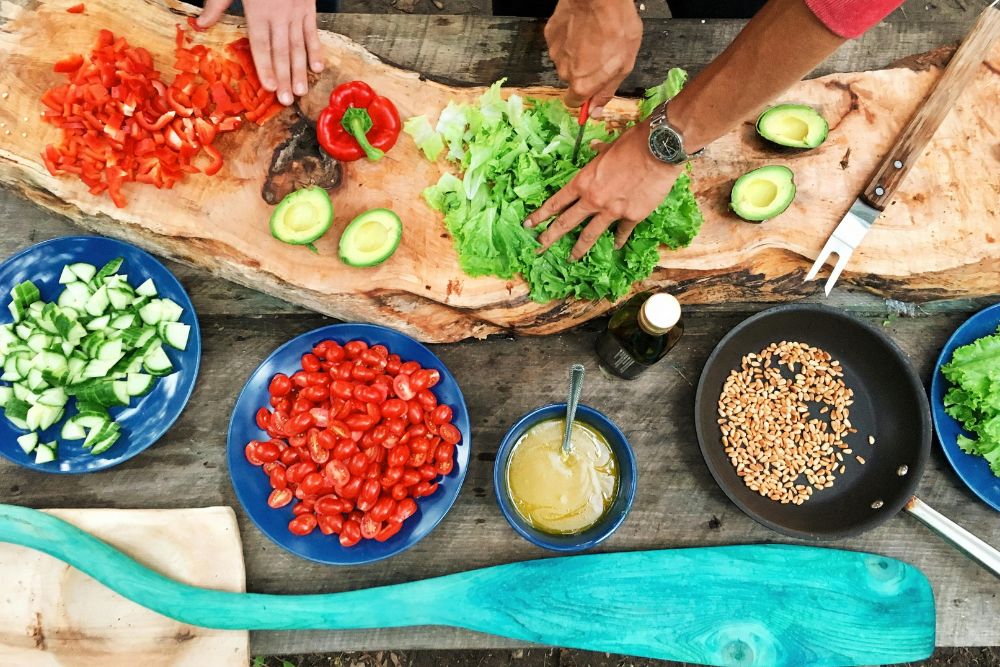Eczema and Diet: What You Eat Can Make a Difference
Gavin Pierce
2025-11-15
6 min read

Eczema, especially atopic dermatitis, is more than just itchy, inflamed skin. For many, it’s a chronic condition that flares up without warning, making everyday life uncomfortable. While managing eczema often involves skincare routines and medications, what you eat can also play a significant role in keeping flare-ups under control. Let’s explore how dietary strategies can help ease symptoms and improve skin health.
What Is Eczema?
Eczema is a group of skin conditions that cause inflammation, redness, and itching. It’s common in children but can affect people of all ages. Symptoms often come and go, with periods of flare-ups followed by calmer skin. The most common types include:
- Atopic Dermatitis: Often linked to allergies or asthma and the most common form of eczema.
- Contact Dermatitis: Triggered by exposure to irritants or allergens (think harsh soaps or nickel).
- Dyshidrotic Eczema: Causes itchy blisters, usually on the hands and feet.
While treatments like moisturizers, steroids, and antihistamines can help, diet can play a surprising role in managing eczema.
How Diet Affects Eczema
For many people with eczema, certain foods act as triggers, making symptoms worse. Avoiding those foods and choosing ones that promote skin health can reduce inflammation and help prevent flare-ups.
Foods to Avoid
Some foods are more likely to irritate the skin or worsen eczema symptoms, especially if you have an allergy or sensitivity. Here’s a list of common culprits:
- Dairy Products: Milk, cheese, and yogurt may trigger eczema in those sensitive to dairy.
- Eggs: A well-known allergen, particularly for children, eggs can exacerbate symptoms.
- Nuts: Tree nuts and peanuts may cause allergic reactions that worsen eczema.
- Soy: Soy products, such as tofu and soy milk, can be problematic, especially for young children.
- Wheat (and Gluten): Gluten-containing foods, like bread and pasta, can sometimes contribute to flare-ups.
- Fish and Shellfish: Allergies to these are common in children with eczema.
If you suspect food triggers, try keeping a food diary to track what you eat and how your skin responds.
What to Eat Instead: Foods That Help Manage Eczema
While avoiding triggers is important, adding anti-inflammatory and nutrient-rich foods can make a big difference. Focus on these eczema-friendly options:
- Fatty Fish (like Salmon and Sardines): Packed with omega-3 fatty acids, these foods can reduce inflammation and improve skin hydration.
- Colorful Fruits and Vegetables: Foods like berries, oranges, spinach, and sweet potatoes are loaded with antioxidants and vitamins that support skin health.
- Whole Grains: Brown rice, quinoa, and oats are less likely to cause inflammation compared to refined grains.
- Probiotic-Rich Foods: Fermented foods like yogurt (if dairy isn’t a trigger), kefir, and sauerkraut promote gut health, which is closely linked to skin health.
- Hydration Heroes: Foods with high water content, like cucumbers, celery, and watermelon, can help keep your skin hydrated from the inside out.
Should You Try an Elimination Diet?
An elimination diet can help you identify specific food triggers. Here’s how it works:
- Remove Potential Triggers: Cut out common allergens like dairy, eggs, soy, and nuts for 2–4 weeks.
- Monitor Symptoms: Keep track of your skin’s condition during this period.
- Reintroduce Foods Gradually: Add one food back into your diet at a time, waiting a few days between each. Watch for any reactions or flare-ups.
An elimination diet requires careful tracking, so consider working with a dietitian or healthcare provider to ensure you’re still meeting your nutritional needs.
Take Control of Your Eczema with Diet
Eczema is a complex condition, but understanding how your diet impacts your skin can be empowering. By avoiding known triggers and focusing on anti-inflammatory, nutrient-rich foods, you can take steps toward managing flare-ups and promoting healthier skin.
If you’re feeling stuck, consider starting with a food diary or exploring an elimination diet to identify patterns between what you eat and how your skin reacts. And don’t hesitate to consult a healthcare professional—they can guide you in creating a personalized plan that works for your body and lifestyle.



